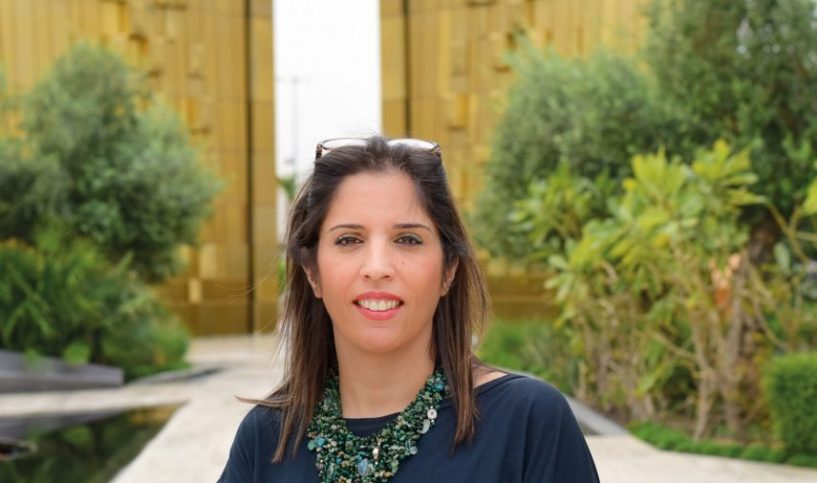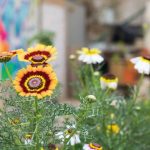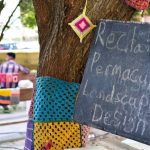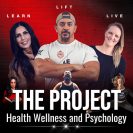Editor’s note: Samia Al-Duaij is now project manager at the UNDP Kuwait.
Once the preserve of “tree huggers”, environmental awareness is very much a mainstream construct in the 21st Century, with terms such as “green economy” and “sustainable development” as a part of our everyday language. But what does all this Green talk actually mean, and who is doing the talking? More importantly, is there any concrete mechanism in place to implement and manage sustainable development and a green economy?
To find out more, I met with Samia Al-Duaij. A Kuwaiti born scientist and environmentalist, Samia is the MENA Consultant to the EPA on behalf of the World Bank, and sees herself as a beneficiary of Kuwait’s investment in education. This investment allowed her to complete a BSc. in Molecular Biology at the University of Manchester, before returning to Kuwait.
“I began my career as a forensic scientist at the Ministry of Interior, after which I joined the Kuwait Institute for Scientific Research. After a few years I was ready for a change and it happened that at that time the Kuwait Scientific Centre was being developed. As I’d always had a love for the marine environment I applied for a role with their team and spent the next two-and-half years working in what was the most fun job I’ve ever had. We literally built the aquarium from scratch, sourcing animals from the Gulf and further afield. One of the highlights was working with a team from the Two Oceans Aquarium in Cape Town, South Africa to fetch the Tiger Sharks now in Kuwait’s Scientific Centre Aquarium.”
Working in the marine environment led to Samia becoming more involved in marine conservation work, particularly the protection of turtles, and this in turn fuelled a desire to further her studies, this time at King’s College, London, where she completed her Masters in Environment, Politics and Globalization.
“Environmental Policy is a mix of science and policy making. Having always been a political person, and as someone who cares about the environment, it seemed like a good fit. In fact, my dissertation focused on Marine Policy and the issues faced by policy makers in Kuwait.”
Having completed her Masters, Samia spent two years with Kuwait Petroleum International in Copenhagen, as an environmental consultant. “This wasn’t really where I wanted to be, though, so when an opportunity arose to apply for a role at the World Bank, as part of the World Bank’s donor country employment program.”
At the end of the program she applied for a staff position with the World Bank, where she worked as a member of their Middle East and North Africa (MENA) Environment Unit. From July 2006 until July 2013, she focused on natural resource management and providing safeguard support for World Bank projects across the MENA region, in Egypt, Yemen, Djibouti, Jordan, Lebanon, Iraq and the GCC) focusing on Marine Issues, Fisheries, Conservation, Environmental safeguards, Environment Impact Assessments and Environmental Economics.
Working as a Task Manager for the Gulf Initiative, based in Washington, Samia’s role increasingly focused on Kuwait and Bahrain, and a regional initiative (for marine environment protection).
“I decided to leave my full time staff position at the World Bank in summer 2013 and return to Kuwait, and I now work as a consultant with the EPA, as well as working in the Red Sea region.”
“One of the most important outputs of the program with the EPA, is costing the Effect of Environmental Degradation in economic terms, or working out how much of Kuwait’s GDP is lost to environmental degradation. For example, air pollution is the highest contributory factor here in Kuwait, with particulate matter contributing to an increase in respiratory diseases. This information provided the EPA with a tool to highlight the importance of environmental issues to key policy makers in different sectors.
In terms of economic costs, the effect of air pollution includes lost man hours due to illness, cost of disease control and treatment, the impact on the food chain, and degradation of the land and marine environment. When you go to a body such as the ministry of Finance and say: “By the way it’s going to cost you this much and we are losing that much in our fisheries sector”, well, they listen.”
Part of the EPA’s remit is to draft and implement a viable environmental policy; in short ensuring that Kuwait works towards a sustainable and green economy. One of the most effective ways of implementing effective environmental policy is through the introduction of new, greener technologies, which is something a number of ministries are currently working on as a direct result of the passing Law 42 of 2014.
“Of course, introducing greener technology produces particular challenges, as it requires funding and buy-in from the public.One technology that is being introduced by the Ministry of Electricity and of Water, is solar power farms, to reduce reliance on current power plants and desalination. The capacity for successful implementation of solar energy projects in Kuwait, and the wider region, is limitless and sustainable.”
There is no doubt, in the minds of everyone involved, that moving to a greener economy will require huge changes in behavior, by individual members of society and by business, but the new policies being implemented, in conjunction with the EPA, are more streamlined than previous laws, and friendlier to small businesses, which should help in the facilitation of the process. As Samia observes:
“Everyone managing this process appreciates that initiatives like recycling, efficient use of water and electricity, efficient management of marine resources, etc. require regulation. It’s a top down process, and if you look at the changes in Europe, the UK and US, over the last decade or more, people change their behavior because of regulation. It isn’t going to happen overnight, but this doesn’t mean that every one of us cannot do something to effect real change.”
Anyone who wants to play an active role in protecting the environment will feel, at times, as though it’s very difficult to influence things or make a real impact. However, Samia is absolutely clear that through our consumer choices and small changes in our behavior, the accumulated effect will be obvious:
“Simple changes, that we can all make, will have a positive effect. From the obvious things like switching of lights to using fewer bags at the supermarket can effect positive change. By choosing to buy only what we need, rather than owning stuff just because it’s in fashion or we like it. By renovating and recycling what we already own, and by not throwing out so much. We will have a positive impact on our environment, as solid waste disposal is one of the biggest pollutants in our modern, consumerist society.”
We can also hold society accountable. For example, as Kuwaiti citizens we have a political voice, through our Parliament and our MPs – who are all ultimately accountable to us – and we can use this voice for positive change.
One of the catalysts that led to the formulation and establishment of Law 42 was citizens using their political voice in reaction to the Um al Haiman incident, which led to the penalizing of some non-compliant factories in nearby Shuaiba. Additionally the new law has adopted the practice of Strategic Environmental Assessment as a tool for incorporating environmental considerations in policy development and land use planning.
One of the results of this investigative process is that the EPA is now headed by the Prime Minister, a change that has led to it having the power to implement real change. All of this is the result of citizens exercising their political power to effect a positive change for the entire community.”
Citizens can learn more about Law 42 and the government’s environmental policy by visiting www.epa.org.kw, but more importantly, they can play an active role if they believe there is an instance that needs to be brought to the attention of the EPA, by accessing either the eMISK (environmental monitoring information system of Kuwait) or Beatona (our environment) portals on the EPA’s website.”
Yes, Kuwait is a small country in a big region, but it is uniquely placed to play a pivotal role in the implementation and management of efficient and effective environmental policies that can be used as a template for the entire Gulf region. On which point, I will leave you with these thoughts from Samia:
“We could look at so many possibilities for developing solar technology and a green economy. We could be leading the region in developing these technologies. The cost benefit ratio is heavily weighted towards benefits, with minimal impact on the environment. Kuwait, in fact, should be the R & D center, for solar power. We have the funding, talent and intellectual ability, the natural resources are there … everything is there, but it’s not being utilized enough – yet.
We send talented people abroad to get the best education, but they aren’t returning because they don’t see opportunities at home. We should give them opportunities, which would allow them to contribute their intellectual capital to the country’s future and to helping contribute to a greener economy. By creating a greener economy and opportunities for talented young Kuwaitis and by using our political voice, which is unique in the region, we can all effect change in a positive manner, to protect the country’s environment and economy, both for now and for the longer term.”
Get in touch with Samia Al-Duaij by emailing her at samia.duaij@gmail.com. Follow Lynda Higgs on Instagram @TheSometimePhotographer, Facebook: LyndaHPhotography. Find Lynda’s work at www.lyndahiggsphotography.com.
Photography by Linda Higgs.










